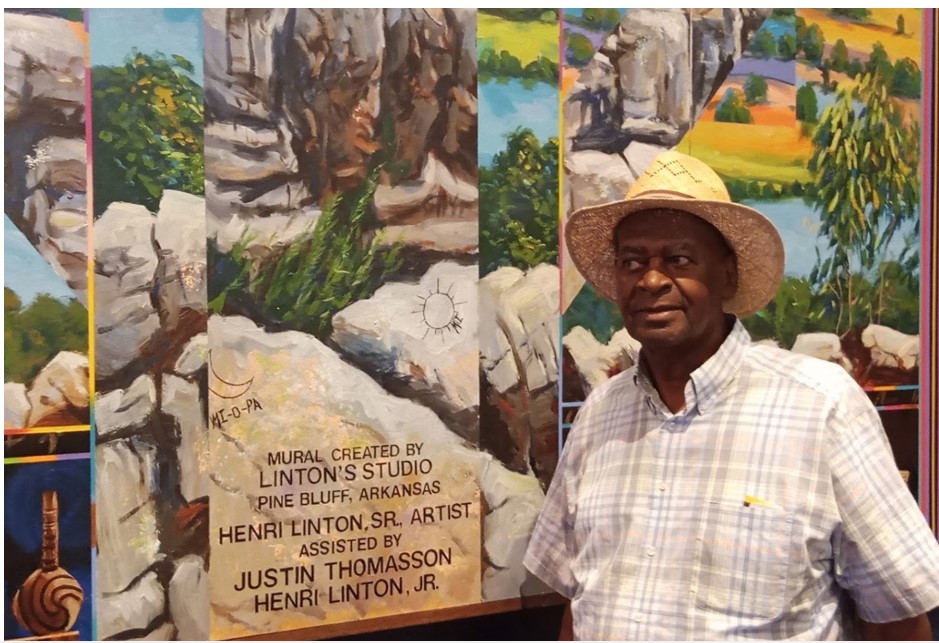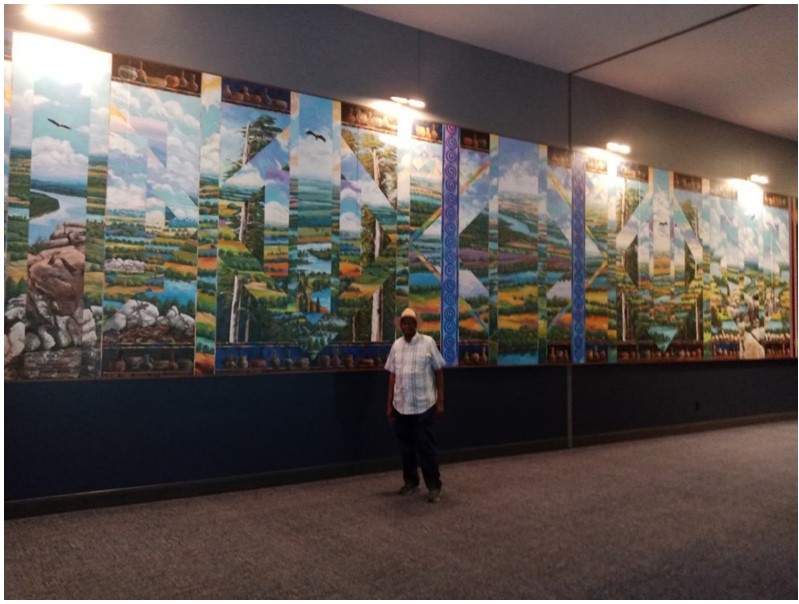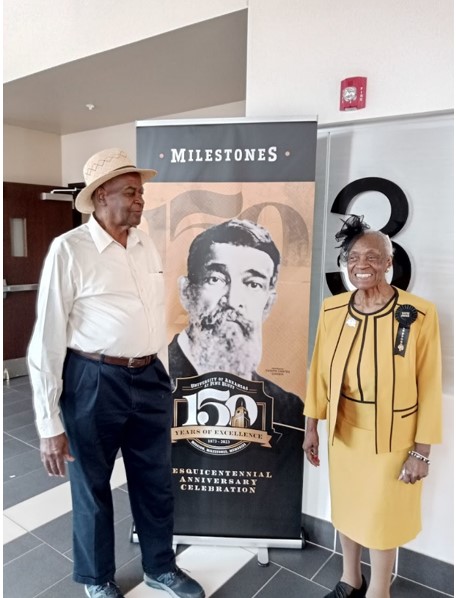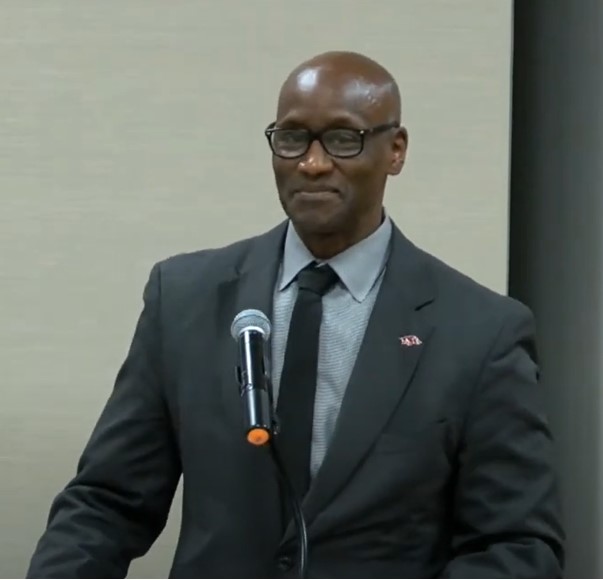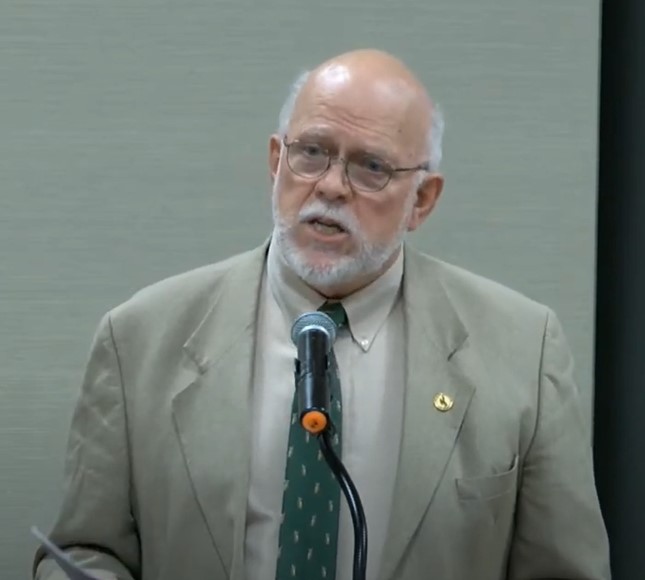A Letter from José LaMont Jones, serving in the Democratic Republic of Congo
Winter 2023
Write to José LaMont Jones
Individuals: Give to E132192 in honor of José Jones’ ministry
Congregations: Give to D500115 in honor of José Jones’ ministry
Churches are asked to send donations through your congregation’s normal receiving site (this is usually your presbytery)
Subscribe to my co-worker letters
Dear friends,
“This is big. This is BIG! THIS IS HUGE!!” These are the words of Arkansas State Senator Stephanie Flowers after learning more on the groundbreaking works of Professor Joseph Carter Corbin, founder of what is now known as the University of Arkansas at Pine Bluff (UAPB). On September 27, 2023, UAPB celebrated its sesquicentennial (150 years) since its founding in 1873 with the commemoration of the first, annual Professor Joseph Carter Corbin Day. I was blessed to attend and assist Corbin’s biographer, Dr. Gladys Turner-Finney, in the planning of this wonderful event.
Joseph Carter Corbin is an Ohio native who made his way to Arkansas in the 1870s and, later, became the first African American State Superintendent of Schools. He encouraged legislation for the establishment of the University of Arkansas at Fayetteville (now the flagship university of the system) and Pine Bluff (for the formerly enslaved).
In 1875, JC Corbin began his work with seven formally enslaved students … none of whom could read beyond the third-grade level. Corbin, who himself spoke eight languages and was a published mathematician, began immersing his students in a rigorous classical education. The first four years, Corbin taught all classes, directed the school choir and even served as grounds keeper and janitor. He eventually went on to produce the first four Black university graduates in Arkansas.The social standing of Blacks diminished in post-reconstruction America. Additionally, the debate of classical verses vocational training for Blacks was raging at the time. Professor Corbin was pushed out of power by the machinations of the pre-Civil War government who had returned to power. In the aftermath, Professor Corbin went on to be the principal at the local Black high school assuring that the stream of thinkers continued.
Just days before the Corbin Day ceremony, newspapers in Arkansas were filled with news and analysis of disparate educational funding that has affected Black universities for decades. Senator Flowers, who is a champion of the battle for equal funding, is right. This is big! In fact, she took copies of Dr. Finney’s book to the Arkansas Governor and Commissioner of Higher Education.
History is more than a collection of dates, names and events. It is a living testament that should inform, convict, inspire and motivate our present actions and shape of our future! There are lessons to be learned from this history.
Both here in the United States and the Democratic Republic of Congo (DRC), the century old debate of vocational vs. classical education continues. Remembering the past; solutions and failures, helps us understand the landscapes within which a rigorous liberal education or vocational training is the best solution. There are organizations and churches within PC(USA) containing individuals with years of experience participating in this debate in the United States. DRC, beginning the path to educate its disenfranchised citizens nearly 100 years later, does not need to start from zero.
Won’t you join in and be part of the solution for DRC schools. My hope is that Congolese society will not need to wait 150 years to realize the fruits that Prof. J. C. Corbin and UAPB have seen. Your prayers and support shows promise for solving educational challenges in both the DRC and in the USA!
Blessings,
José
Please read this important message from Director of World Mission Rev. Mienda Uriarte
Then the King will say to those at his right hand, ‘Come, O blessed of my Father, inherit the kingdom prepared for you from the foundation of the world; 35 for I was hungry and you gave me food, I was thirsty and you gave me drink, I was a stranger and you welcomed me, 36 I was naked and you clothed me, I was sick and you visited me, I was in prison and you came to me.’ Matthew 25:34-36
Dear friends,
Great things are happening in World Mission! As you know from the letters you’ve been receiving, our mission co-workers are at the forefront of showing us what Matthew 25 looks like in the U.S. and in the wider world. They are addressing issues related to eradicating systemic poverty, building congregational vitality and dismantling structural racism. Together with our partners, mission co-workers are engaged in life-transforming ministries in 80 countries around the world. Here are just a few examples:
As an education consultant in the Democratic Republic of Congo, José Jones assists the Presbyterian Community of Kinshasa (CPK) education department in the development, implementation and evaluation of strategic plans to strengthen the church’s primary and secondary education programs for more than 350 schools.
Based in Manila, Rev. Cathy Chang works closely with the United Church of Christ in the Philippines (UCCP) and other partners in ministry to engage programs and networks across Asia that advocate for people vulnerable to forced migration and human trafficking.
Nadia Ayoub works alongside our Greek partners as they faithfully hold to the biblical call to welcome the stranger. Nadia serves with Perichoresis, a ministry of the Evangelical Church of Greece that provides housing and support to refugees; most of whom have come to Greece from Arabic-speaking countries.
Joseph Russ strengthens and supports a network of partners working in El Salvador, Guatemala and Honduras to address migration issues in the Northern Triangle. Based on the needs people on the ground identify, Joseph empowers U.S. congregations to engage in advocacy related to Central America and immigration reform.
Revs. Drs. Noah Park and Esther Shin serve as professors at the Evangelical Theological Seminary in Cairo (ETSC). ETSC graduates work toward revitalizing congregational ministries in Egypt and work with refugee and peace ministries in various countries in the Middle East.
Please consider giving an extra gift this year to support our mission co-workers as they walk alongside our partners and help shape a more life-giving, equitable and hopeful world!
Prayerfully,
![]()
Rev. Mienda Uriarte, Director of World Mission
Presbyterian Mission Agency
Presbyterian Church (U.S.A.)
To give online, visit https://bit.ly/23MC-YE.
Honorary gifts can be made by checking the box and writing the mission co-worker’s name in the comment field online.
![]() You may freely reuse and distribute this article in its entirety for non-commercial purposes in any medium. Please include author attribution, photography credits, and a link to the original article. This work is licensed under a Creative Commons Attribution-NonCommercial-NoDeratives 4.0 International License.
You may freely reuse and distribute this article in its entirety for non-commercial purposes in any medium. Please include author attribution, photography credits, and a link to the original article. This work is licensed under a Creative Commons Attribution-NonCommercial-NoDeratives 4.0 International License.
